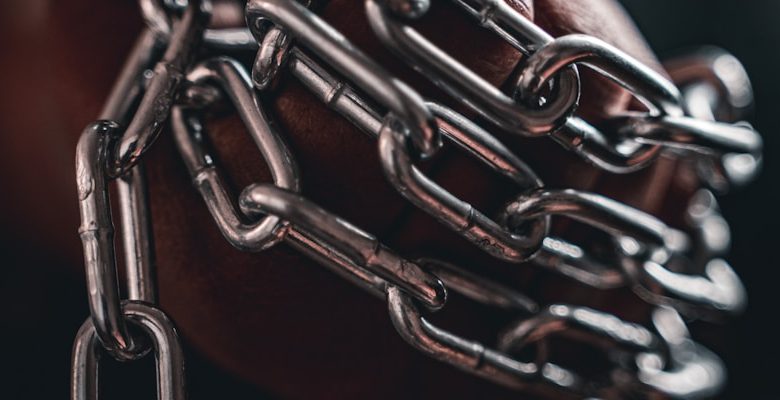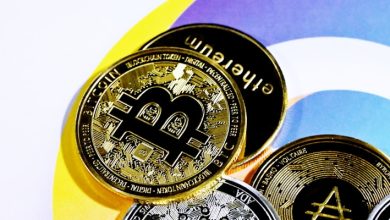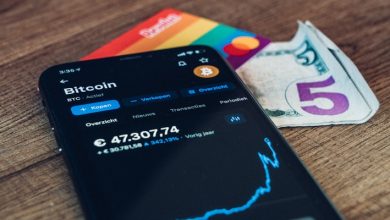The Role of Oracles in Connecting Blockchains to Real-World Data

- The Importance of Oracles in Blockchain Technology
- How Oracles Bridge the Gap Between Blockchains and Real-World Data
- Understanding the Functionality of Oracles in the Blockchain Ecosystem
- The Evolution of Oracles and Their Impact on Decentralized Applications
- Challenges and Opportunities in Utilizing Oracles for Smart Contracts
- Exploring the Role of Oracles in Enabling Decentralized Finance (DeFi) Applications
The Importance of Oracles in Blockchain Technology
Oracles play a crucial role in blockchain technology by serving as the bridge between smart contracts and real-world data. They are essential for blockchain networks to interact with external sources of information, enabling them to execute a wide range of applications beyond the scope of their native environment.
Oracles provide blockchain networks with access to data that is not stored on the blockchain itself, such as market prices, weather conditions, or sports scores. This external data is necessary for smart contracts to trigger specific actions based on real-world events, making them more versatile and powerful.
By connecting blockchains to external data sources, oracles help ensure the accuracy and reliability of information used in smart contracts. This is crucial for various industries, including finance, supply chain management, and insurance, where timely and accurate data is essential for decision-making and automation.
Overall, the importance of oracles in blockchain technology cannot be overstated. They play a vital role in expanding the capabilities of smart contracts and enabling blockchain networks to leverage real-world data for a wide range of applications. As the adoption of blockchain technology continues to grow, the role of oracles will become increasingly critical in ensuring the seamless integration of decentralized systems with external sources of information.
How Oracles Bridge the Gap Between Blockchains and Real-World Data
Oracles play a crucial role in connecting blockchains to real-world data, bridging the gap between these two seemingly disparate worlds. By acting as intermediaries, oracles enable smart contracts on blockchains to interact with external data sources, ensuring that the information they rely on is accurate and reliable.
Oracles serve as the eyes and ears of blockchains, providing them with access to real-world data such as market prices, weather conditions, sports scores, and more. This data is essential for a wide range of decentralized applications, from decentralized finance (DeFi) platforms to supply chain management systems.
One of the key challenges that oracles help address is the issue of trust. Since blockchains are inherently trustless systems, they rely on oracles to verify the accuracy of external data before it is used in smart contracts. This helps prevent fraud, manipulation, and other malicious activities that could compromise the integrity of the blockchain.
Oracles come in various forms, including centralized oracles, decentralized oracles, and hybrid oracles. Each type has its own set of advantages and limitations, depending on the specific use case and requirements of the blockchain application.
Overall, oracles play a vital role in expanding the capabilities of blockchains and unlocking new possibilities for decentralized applications. By connecting blockchains to real-world data, oracles help ensure that smart contracts can operate effectively and securely in a global, interconnected digital economy.
Understanding the Functionality of Oracles in the Blockchain Ecosystem
Oracles play a crucial role in the blockchain ecosystem by serving as a bridge between smart contracts and real-world data. They act as trusted sources of information that can provide external data to the blockchain, enabling smart contracts to execute based on real-time information. Oracles are essential for decentralized applications that require data beyond the confines of the blockchain, such as weather updates, stock prices, or sports scores.
By leveraging oracles, blockchain networks can access a wide range of information from various sources, ensuring the accuracy and reliability of the data used in smart contracts. Oracles are designed to verify and authenticate data before it is inputted into the blockchain, reducing the risk of manipulation or fraud. This functionality enhances the overall security and efficiency of blockchain applications, making them more trustworthy and reliable for users.
Oracles operate through a decentralized network of data providers who supply information to the blockchain in a secure and transparent manner. These data feeds are then processed and validated by the oracles before being integrated into the smart contracts. This process ensures that the data is accurate and up-to-date, preventing any discrepancies that could compromise the integrity of the blockchain network.
Overall, the functionality of oracles in the blockchain ecosystem is essential for connecting blockchains to real-world data and expanding the capabilities of decentralized applications. By enabling smart contracts to access external information securely and reliably, oracles play a critical role in driving innovation and adoption within the blockchain industry.
The Evolution of Oracles and Their Impact on Decentralized Applications
Oracles have played a crucial role in the evolution of decentralized applications (DApps) by bridging the gap between blockchain networks and real-world data sources. These intermediaries have enabled smart contracts to interact with external information, enabling a wide range of applications beyond the scope of blockchain technology alone.
The use of oracles has significantly expanded the capabilities of DApps, allowing them to access data from the internet, IoT devices, financial markets, and other external sources. This has enabled the development of decentralized finance (DeFi) platforms, prediction markets, supply chain tracking systems, and more. As a result, oracles have become an essential component of the blockchain ecosystem, facilitating the growth and adoption of DApps across various industries.
One of the key challenges in integrating oracles with blockchain networks is ensuring the security and reliability of the data they provide. Malicious actors could manipulate the information fed into smart contracts through oracles, leading to erroneous outcomes and potential financial losses. To address this issue, various approaches such as decentralized oracles, data verification mechanisms, and reputation systems have been developed to enhance the trustworthiness of oracle solutions.
Despite the progress made in the field of oracles, there are still ongoing efforts to improve their performance, scalability, and interoperability with different blockchain platforms. Innovations such as cross-chain oracles, off-chain data aggregation, and decentralized oracle networks are being explored to address the current limitations and enhance the functionality of oracle services in the decentralized ecosystem. Overall, the evolution of oracles continues to shape the future of DApps and blockchain technology, opening up new possibilities for decentralized applications to revolutionize various industries.
Challenges and Opportunities in Utilizing Oracles for Smart Contracts
When it comes to utilizing oracles for smart contracts, there are both challenges and opportunities that need to be considered. Oracles play a crucial role in connecting blockchains to real-world data, but they also come with their own set of complexities.
One of the main challenges in using oracles is ensuring the accuracy and reliability of the data they provide. Since smart contracts rely on this data to execute actions, any inaccuracies or tampering could result in serious consequences. It’s essential to carefully vet and select reputable oracles to mitigate this risk.
Another challenge is the potential for centralization when using oracles. If a single oracle is responsible for providing data to a smart contract, it creates a single point of failure. This could be exploited by malicious actors to manipulate the data and compromise the integrity of the contract.
Despite these challenges, there are also significant opportunities in leveraging oracles for smart contracts. Oracles enable smart contracts to interact with real-world events and data, expanding their use cases beyond the confines of the blockchain. This opens up a world of possibilities for creating dynamic and versatile applications.
Furthermore, oracles can help bridge the gap between blockchain and traditional systems, facilitating seamless integration and interoperability. This can lead to increased efficiency, transparency, and automation in various industries, from finance to supply chain management.
In conclusion, while there are obstacles to overcome in utilizing oracles for smart contracts, the benefits far outweigh the risks. By addressing the challenges and leveraging the opportunities effectively, developers can harness the full potential of oracles to enhance the functionality and utility of smart contracts in the blockchain ecosystem.
Exploring the Role of Oracles in Enabling Decentralized Finance (DeFi) Applications
Oracles play a crucial role in enabling decentralized finance (DeFi) applications by connecting blockchain networks to real-world data. The use of oracles allows DeFi platforms to access external information such as price feeds, market data, and other relevant metrics needed to execute smart contracts and make informed decisions. By bridging the gap between blockchain technology and real-world data, oracles help ensure the accuracy and reliability of decentralized financial transactions.
Without oracles, DeFi applications would be limited to only using on-chain data, which may not always provide the necessary information for executing complex financial transactions. Oracles act as intermediaries that fetch external data from various sources and deliver it to smart contracts on the blockchain. This capability enables DeFi platforms to interact with real-world events and conditions, opening up a wide range of possibilities for decentralized finance.
Furthermore, oracles help mitigate the risks associated with centralized points of failure by distributing data feeds across multiple sources. This decentralization of information enhances the security and resilience of DeFi applications, making them less vulnerable to manipulation or data inaccuracies. By leveraging oracles, DeFi platforms can achieve greater transparency, trust, and efficiency in their operations, ultimately leading to a more robust and sustainable decentralized financial ecosystem.



